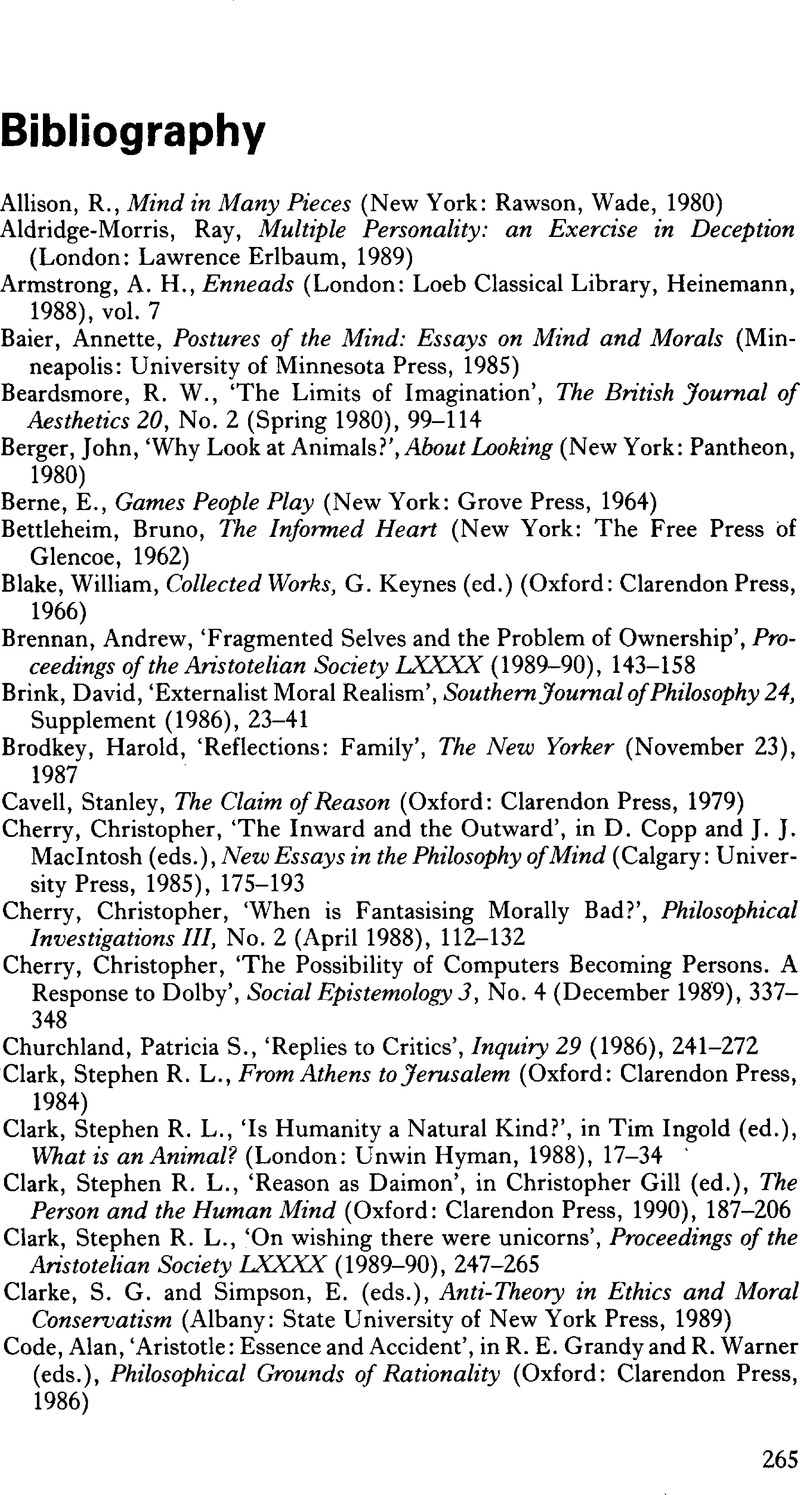Geschwind, N., ‘The Development of the Brain and the Evolution of Language’, in
Stuart, C. I. J. M. (ed.),
Monograph Series on Language and Linguistics, (
Washington:
Georgetown University Press,
1964). Reprinted in Geschwind, N.,
Selected Papers on Language and the Brain, Boston Studies in the Philosophy of Science 16 (Dordrecht-Holland: Reidel, 1974) Gill, Christopher (ed.),
The Person and the Human Mind (Oxford: Clarendon Press, 1990)
Google Scholar 